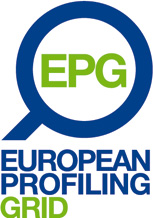 Robert McLarty, Head of Professional Development at OUP, gives a brief introduction to the European Profiling Grid (EPG) project to help improve the quality and effectiveness of language training.
Robert McLarty, Head of Professional Development at OUP, gives a brief introduction to the European Profiling Grid (EPG) project to help improve the quality and effectiveness of language training.
I play golf in the most average way possible. I have been at the same level of golf since I left school around forty years ago. If I were learning English, my teacher would already have placed me right in the middle of the intermediate plateau. Luckily, golf is only a hobby so I don’t have to justify my level to anyone but myself.
Language teachers, on the other hand, have always found it hard to assess themselves. For a long time we have had the debate about native speakers as opposed to non-native speakers. Then there have been disputes as to whether knowledge of the language or ability to illustrate that knowledge and pass it on is the more important skill.
There are a number of initial teaching qualifications for language teachers, others for more experienced ones, and then a wide range of post-graduate qualifications. But how much do they improve the quality of someone’s teaching? Experience seems valued until the teacher has been somewhere too long; inexperience is valued because it is usually added to with zest and vigour. But there is always a question mark over the rookie teacher, despite the fact that they innovate without meaning to and often bring genuine passion to the classroom.
Within teaching establishments there is usually a wide range of teacher profiles with a completely individual mix of talents and qualities, strengths and occasional weaknesses. That is what’s so engaging about language teaching – but it also brings its own risk. Other professions can increase the value and the price of their service simply by having a linear progression of qualifications. This will never work for education. There are too many other factors to take into consideration.
So, when a school claims that their teaching staff is qualified and experienced, what does this mean? Does it necessarily add value? Why are they better than the competition or better than the new school, which is lowering its prices but offering the same level of service?

Against this backdrop, a very exciting project has been run by a group of institutions from across Europe who have developed the European Profiling Grid. This is a framework of competences for language teachers available as an online assessment tool. The same tool can be used by the teachers themselves, their trainers or their managers.
By plotting your level to a range of descriptors in four main areas, you arrive at a profile (often jagged) of your teaching as it is today. You are encouraged to assess your training and experience, including observed teaching, your teaching skills along with other life skills such as intercultural competence, your digital literacy, and your professionalism.
Discussing it with a group of managers, trainers and teachers at the recent IATEFL BESIG conference, a number of conclusions were drawn. There was consensus that it will be a useful tool for professional development in that it shows where a teacher needs further training; it will act as a good starting point for an appraisal conversation; it is a useful official document confirming a teacher’s competence at any given time, and; as a collection of records it will give an accurate profile of an institution’s professional knowhow and experience – very useful when bidding for new business or preparing for inspections.
The same discussion raised doubts about the lack of personal skills areas in the grid – communication, collaboration, charisma, creativity and so on – and it’s hoped that these will be addressed at some stage. It was also noted that schools could misuse the grid in a judgmental way, which might actually be damaging for a particular teacher.
As part of a professional development portfolio, however, the grid got a big welcome. In much the same way as the CEFR was greeted with caution and grew into a vital benchmarking system for language learners, I expect the EPG will be in common parlance in the teaching world within a short space of time.
The first iteration is now available on the EPG Project website. Try it out and submit feedback to the project team.


Reblogged this on hungarywolf.
[…] Robert McLarty, Head of Professional Development at OUP, gives a brief introduction to the European Profiling Grid (EPG) project to help improve the quality and effectiveness of language training. … […]
[…] Robert McLarty, Head of Professional Development at OUP, gives a brief introduction to the European Profiling Grid (EPG) project to help improve the quality and effectiveness of language training. … […]
[…] Robert McLarty, Head of Professional Development at OUP, gives a brief introduction to the European Profiling Grid (EPG) project to help improve the quality and effectiveness of language training. … […]
[…] “ Robert McLarty, Head of Professional Development at OUP, gives a brief introduction to the European Profiling Grid (EPG) project to help improve the quality and effectiveness of language training. …” […]
[…] Robert McLarty, Head of Professional Development at OUP, gives a brief introduction to the European Profiling Grid (EPG) project to help improve the quality and effectiveness of language training. … […]
[…] Robert McClarty, Head of Professional Development at OUP, gives a brief introduction to the European Profiling Grid (EPG) project to help improve the quality and effectiveness of language training. I play golf in the most average way possible. […]